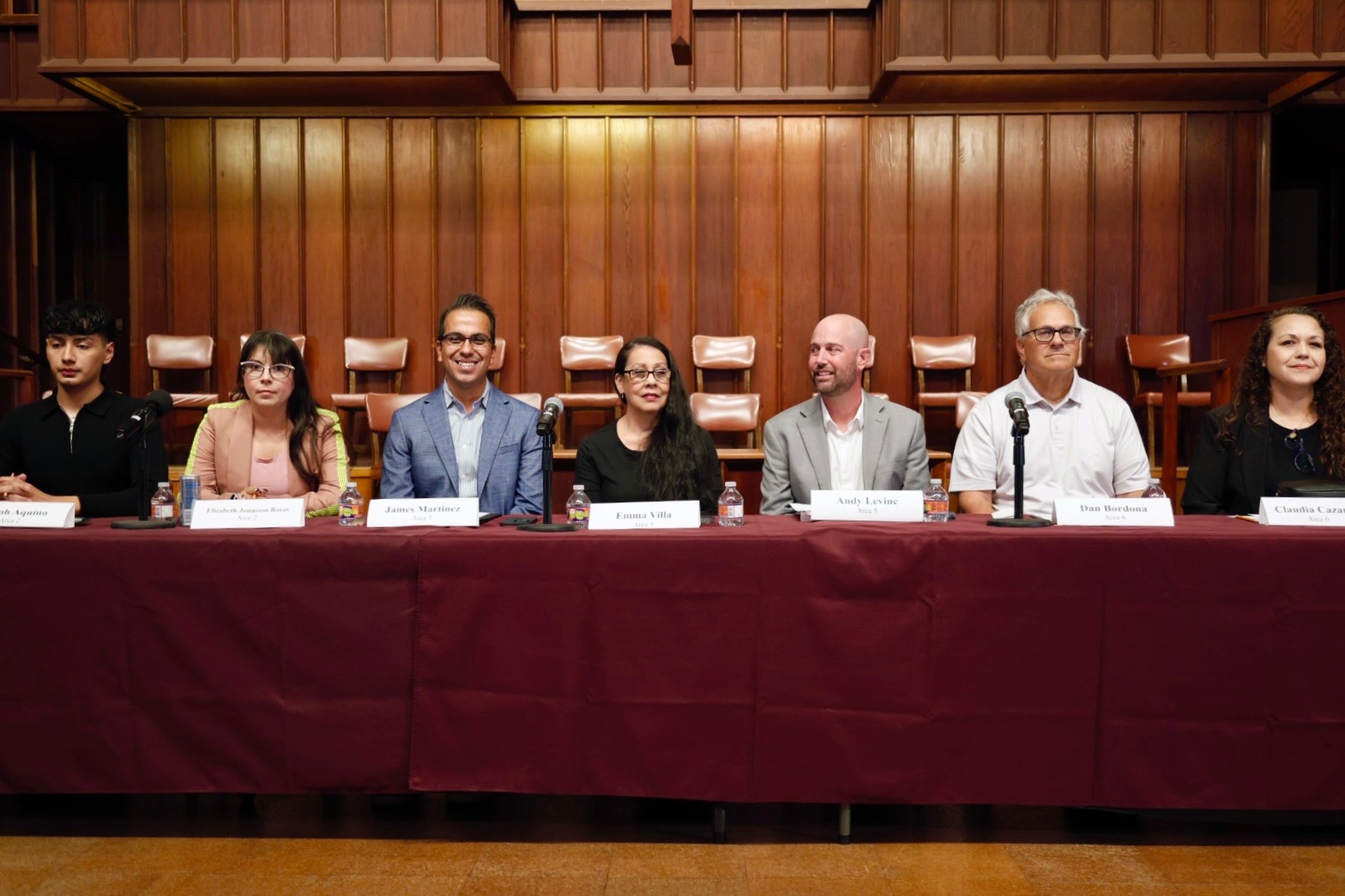Credit Antonio Flores and Kevin Shelton
By Colby Tibbet
Over 100 parents, students and community members came out to Edison High School to make their voices heard in the debate over how Fresno Unified School District (FUSD) should allocate new state education dollars to local schools.
The event was organized by The California Endowment (TCE), a private health foundation, and was just one in a series of statewide forums dubbed the “School Success Express,” intended to ensure that parents have a say over how school districts will spend the influx of new state education revenue being generated by Proposition 30, a measure approved by voters last November which raised income taxes on Californians who earn more than $250,000 per year.
In addition to receiving more revenue, school districts will have more power than ever before in determining how to spend their state funds, thanks to the new Local Control Funding Formula (LCFF) that was approved by state lawmakers and Gov. Jerry Brown earlier this year.
“We want parents and students and concerned community members to really think outside the box,” said Ernesto Saavedra, one of the moderators of the event.
The forum attendees were split into several groups, based on language – one each for English, Hmong, and Spanish speaking parents. Translators were on hand to ensure that everyone’s voice would be heard. There was also an additional group formed for students who wished to have their ideas heard.
After the group session, volunteers of reported back their group’s ideas to the whole forum. The California Endowment plans to aggregate and compile the feedback into a summary that can then be shared with state and school district officials.
One of the parents, Nicole Smith, said she hoped the funds could be used to address school discipline policies and procedures that disproportionately impact minority students.
“Times have changed, but are kind of still the same,” said Smith. “The minorities are getting suspended 3 to 5 times more than anyone else.”
Many parents shared Smith’s concern, with some suggesting that preliminary steps and prevention programs should be a part of the school disciplinary process.
“They should be able to rehabilitate in a positive way, not just suspend or expel and move on to the next child,” said one parent in the English-speaking group.
Mary Haskin, a mother of two, said that teachers should develop a better understanding of the needs of students with learning or developmental disabilities, which would help lower suspension rates.
“How many of these kids are labeled as behavioral problems or written off, when really they have ADHD (Attention Deficit Hyperactivity Disorder), or have some other learning disability?”
Haskin added that this should start as early as possible in a child’s schooling, to prevent issues that might otherwise become bigger problems later.
“If you start from kindergarten, or first grade, that might change the life of that child forever,” said Haskin.
Other suggestions made by the parents included: Workshops for parents who are unable to help with their children’s homework; hiring staff that reflects the community; AP classes for all students, so that everyone is able to receive college credit while in high school; and more bilingual teachers and staff members – an issue of particular importance to the Spanish and Hmong speaking parents.
Students also expressed their ideas and concerns. They spoke out against the idea of extending the school day, something district officials have proposed to do with the new funding.
“Instead of having school longer, there should be more teacher assistance in the class. The teacher can’t teach everybody,” said one of the students in the group.
The Fresno forum, said Albert Maldonado of TCE, felt consistent with the meetings that have already taken place in other communities across the state.
“The biggest thing we hear is parents wanting to be involved more,” said Maldonado.


